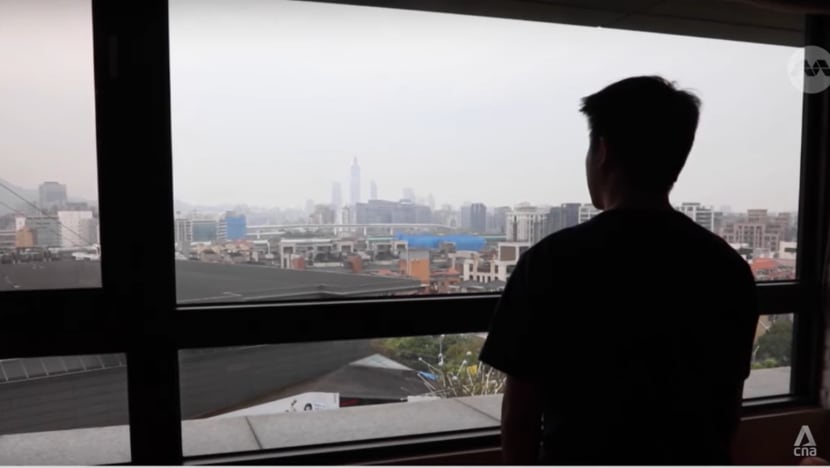‘I lost all hope’: Taiwanese youth struggle with depression amid low wages, high housing prices
In 2023, the number of Taiwanese under the age of 30 who were taking medication for depression symptoms doubled from a decade ago.

Mr Wu Yi-fan, 28, suffered from depression during his college days.

This audio is generated by an AI tool.
TAIPEI: While most college students fill their time with classes and partying, Mr Wu Yi-fan was going through the darkest moment of his life.
The 21-year-old felt constantly lost and helpless. Things that he used to be attracted to had lost their appeal, and nothing was worth pursuing anymore.
“I didn’t want to do anything. I felt a lot of emotional pain. I felt I was in a really terrible condition,” he told CNA. “I lost all hope. I felt that I will never be successful no matter what I do."
He could not put a name to what he was feeling until he sought medical help and was diagnosed with depression.
“I … internalised those expectations (of my parents and society), that I needed to be successful so that people would look up to me, that I had to make a lot of money and be powerful, so that I would live a good life."
Experts say low wages and high property prices are among factors contributing to the decline of mental health among young Taiwanese. Many do not think they can afford to buy a home, let alone have a family – leading them to think they have no future.
Last year, more than 215,000 Taiwanese under the age of 30 took medication for depression symptoms – over double the number recorded a decade ago.
However, the number of people living with the condition is likely much higher. According to some studies, less than 30 per cent of people with depression seek medical attention.
The Guardian newspaper reported that between 2014 and 2022, the suicide rate among Taiwanese aged 15 to 24 more than doubled, even as the overall rate declined.
SOCIAL MEDIA PLAYS A PART
Taiwanese social enterprise Teacher Chang Foundation, which offers mental health counselling, said about a quarter of those reaching out to its counsellors are below 30 years old.
The chairwoman of its Taipei branch, Ms Liu Su Fang, said her young clients often express doubts about whether their job will lead to good prospects, or if they will be able to attain a steady income and stable livelihood.
“Some even worry whether they would be able to afford a home, or have a family,” Ms Liu said.
Another non-profit organisation John Tung Foundation said the prolonged use of social media has contributed to low self-esteem among young people and made them more susceptible to symptoms of depression.
“Our study shows that those who spend more than six hours a day on the internet, their depressed level would be higher than other young people,” said the foundation’s mental health centre director Yeh Ya Hsing.
“One reason is because when you’re on social media, you are more prone to make comparisons such as: Why is everyone so happy? Why is everyone better than me? Why are they prettier?”
Mr Ivan Yeo, deputy director and lived experience lead at Asian Family Services in New Zealand, pointed to another factor: the COVID-19 pandemic.
During that period, there was also an increase in knowledge and understanding of what mental health was, Mr Yeo told CNA’s East Asia Tonight programme.
For Mr Wu, he has come a long way since his diagnosis seven years ago. Now aged 28, he works as a producer at a local internet company.
He said he also picked up an important lesson during his recovery process.
“When I felt depressed, I often thought I was going to stay this way for the rest of my life. I thought I would never get well and I would lose hope,” he recounted.
“But it’s important to remind yourself that the depressed emotion is only temporary and it will pass.
“Don’t rush to judge yourself and make major decisions. I think that’s very important.”


















